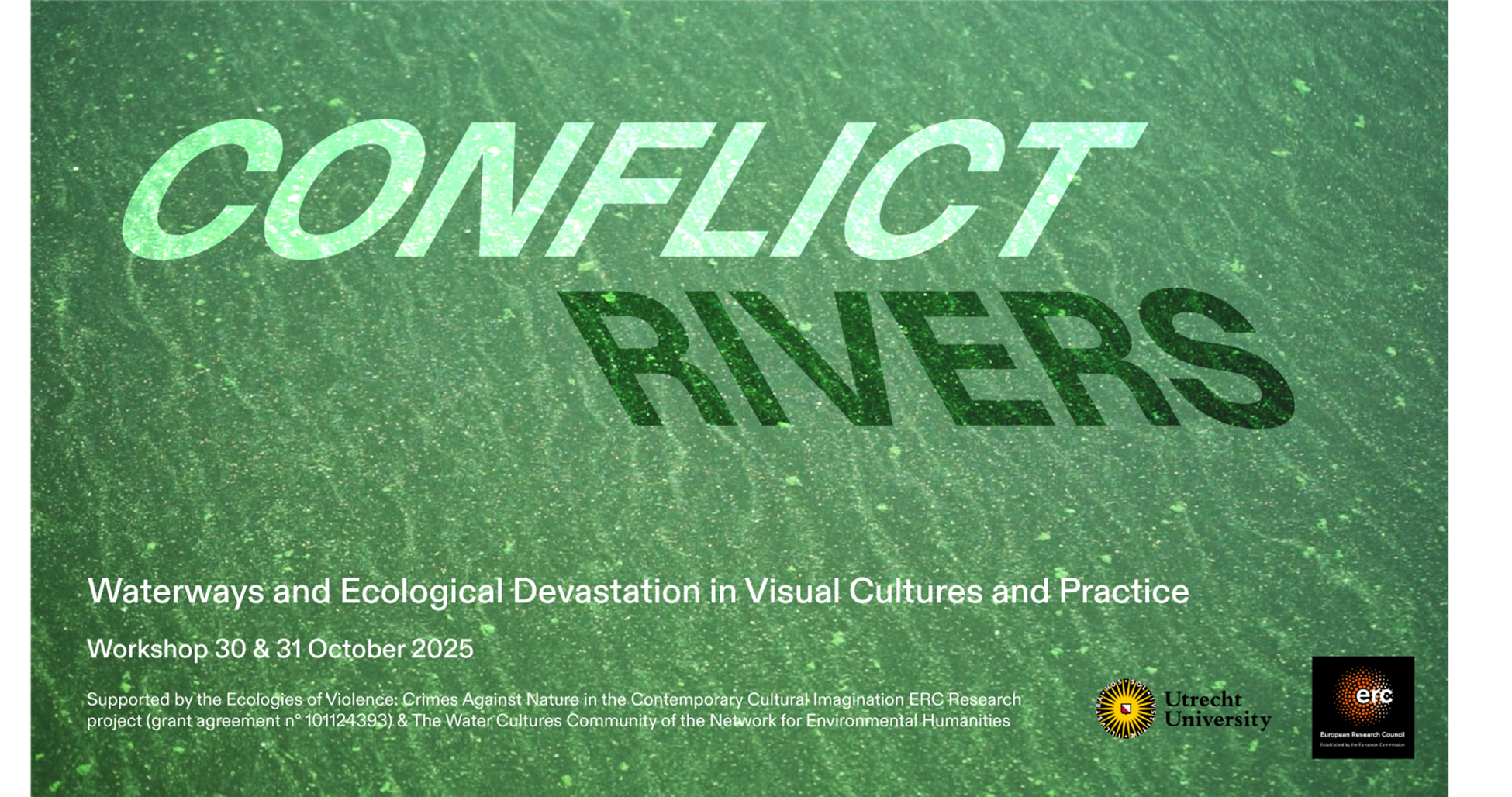Agenda
Workshop: Conflict Rivers
Utrecht University, 30-31 October, 2025.
Conflict Rivers is a workshop hosted by the Ecologies of Violence: Crimes Against Nature in the Contemporary Cultural Imagination Research Project and the Water Cultures Community of the Network for Environmental Humanities at Utrecht University and convened by Ifor Duncan.
Rivers are constitutive features of the cultural imagination, the focus of innumerable artworks, literary texts, and cosmologies. Their contestation is central to past, present and future ecological devastation. The thresholds of rivers themselves are sites of conflict between local communities and global finance, property, development, extraction, and exploitation. This workshop invites interdisciplinary researchers, artists and practitioners to think through the forms of creative and spatial practices that attend to riverine and freshwater ecosystems and the multiple and unexpected forms of conflict that they face.
Central to the idea of Conflict Rivers is the activism and ways of living and knowing water that have always persisted before and outside of the devastation of capitalism. Following the 2022 Biennale of Sydney, which drew attention to the root of the word river in the latin rīvus, “also at the origin of the word rivalry” (2021), conflict is used here not only in reference to overt geopolitical or armed conflict over resources (Shiva, 2002) but also the forms of dispute or the organisation of power that pervade contemporary social and environmental forms. This includes what Astrida Neimanis refers to as “everyday militarisms” (2020), or where water is a medium and archive of toxins and pollutants that Michelle Murphy frames as the “alterlife” of chemical relations (2017).
Foregrounding feminist, indigenous, postcolonial, decolonial, and anticolonial thinkers, practitioners and resistance activism, in this workshop we will address the proliferating forms of river conflict and struggles for social and environmental justice across spatio-temporal scales. These include but are not limited to overt cases of river borders, the displacement of populations through hydropower, the colonial legacies of water management and infrastructure as well as river logistics, financialisation, transboundary geopolitics, genocide, public health, food security, microbial, sedimentary and multispecies river life. These themes will be situated within the ongoing discourse of the rights of nature and ecocide. This workshop encounters rivers through their geopolitical and cultural significance, what we might tentatively call an aesthetics of fluvio-geopolitics.
To foster a multi- and non-disciplinary session necessitated by the manifold threats rivers face, we invite work-in-progress contributions from the intersecting perspectives of Environmental Humanities, Art, Visual and Sound practice, Memory Studies, Literature, Performance, Law, Anthropology, Geography and Earth Sciences, Public Health, Landscape Architecture and Spatial Investigation. This intends to be a workshop developing towards a peer-reviewed special journal issue including multimodal contributions and an ongoing reading group. We invite papers, artistic and spatial practice with room for screenings and other multimedia research practice.
There will be a visit to the Waterliniemuseum located on the outskirts of Utrecht a site of the historic weaponisation of water in the local landscape.
Note that there will be a maximum of 20 participants and the event will be in person in Utrecht.
Programme TBA.

